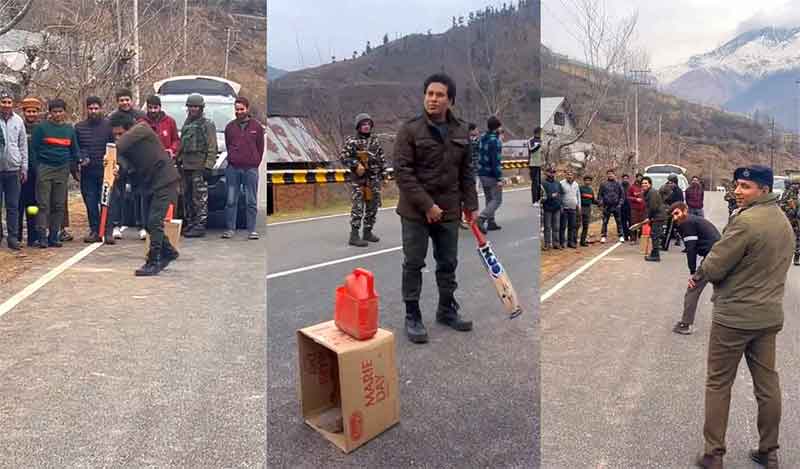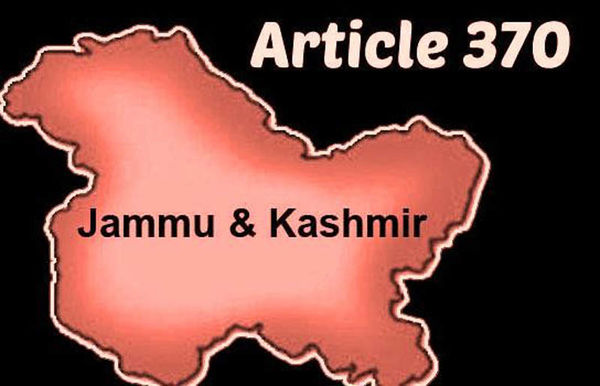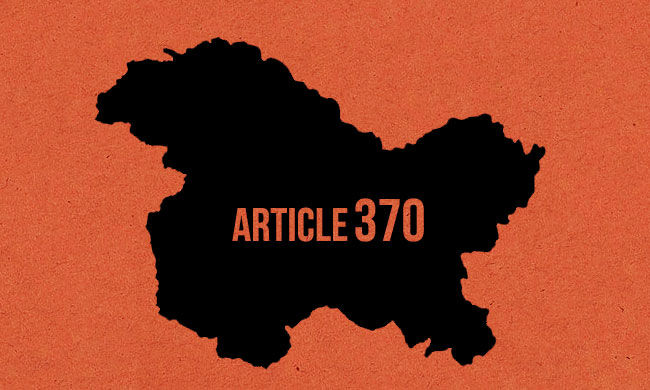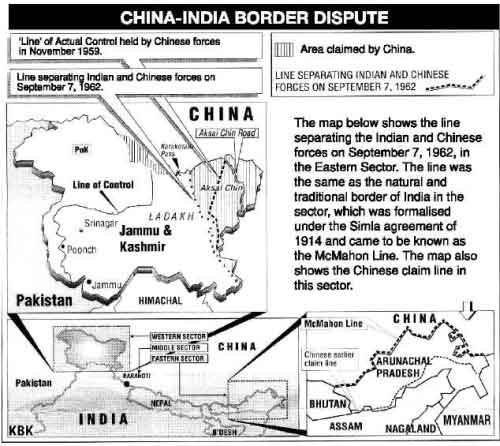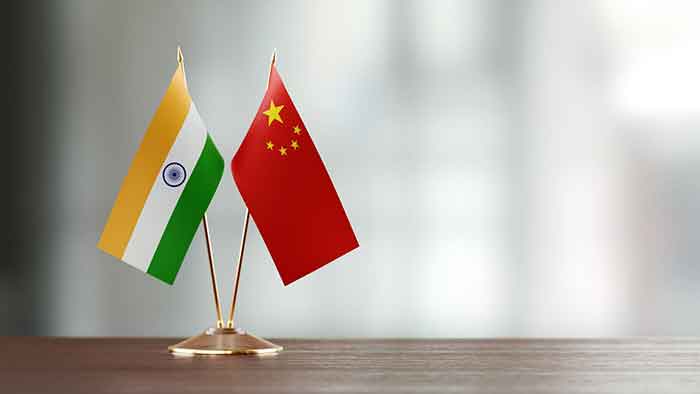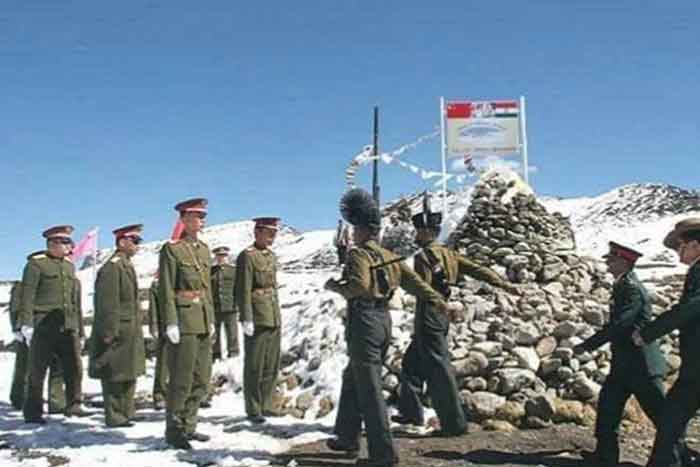
“My enemy’s enemy is my friend, come to Jammu and Kashmir and realise its intensity among the ordinary people living near the border with China. The land beneath you will feel like it has slipped away”. This is the observation of many analysts in South Asia who have reported the strong indignation of locals against Indian establishment in the context of India China border clashes in Ladakh where the majority of the local population no longer considers China as an enemy.
“Had these Chinese incursions inside Galwan valley happened few years back, China would have got first big slap from locals before Indian army’s coming to brawls with opponents. Not to talk of any such support now which, to everybody’s surprise, China is receiving currently from local population on Indian side through many platforms of social websites. Supporters include those Ladakhi also who have never ever supported the Kashmir freedom movement. In contrast, they had demanded separate political system to satisfy their long term complaints of neglect from the previous governments in the state”. A renowned scholar of political science in Kashmir University expressed these thoughts during a video conference held in London few days before.
In reality, the political perspective has altogether got changed since 5th august 2019. Abrogation of Art 370, which had provided semi autonomy cover to the state of Jammu and Kashmir since its accession with India, has impacted the thought process of twelve million inhabitants. The majority consider it degradation, truncation and reduction of their statehood and like placing them as a prey before the dragon (China) that better needs to be treated as a friend now.
Looking back at the early 90s when Kashmir had witnessed armed movement against Indian control, there was still a good chunk of population favouring India. Currently more than 99% of the population has expressed deep resentment against India’s decision to implement disintegration of the state including many non Muslims of this whole region.
It is true that the war is fought by army and won by Nation but it is also true the victory or defeat of the army depends upon the support and assistance of the local population. By losing confidence and support of common people and horrifying them by putting trigger on their jugular vein, wisdom suggests that it is better to call off your adventure for further confrontation that would result in disastrous consequences. Threat becomes imminent from your populace rather than from your enemy.
It is easy to dismantle the state structure and reduce it to many municipalities. It is also easy to turn these municipalities into jails and concentration camps. And, it is more rewarding to kill young population in fake encounters, rape and raid of any household at any moment of the hour. But, it becomes more precarious when at the time of confrontation like one in Galwan valley; your own citizens are lashing out at you “if you are not bothered about me why would I bother about you” and praise the enemy’s action in open forums. I think one should not dare to cross those roads and streets which are needed to travel through to reach border because finding people living across these roads and villages praying for the victory of the enemy country and not for you might take steam and spirit of fighting away.
Locals do not expect any miracle from China. Be sure about it.
Kashmiris know the situation of Uyghur’s in northern China is much worse than for them. Their sufferings in the incarceration camps and prisons cannot be forgiven. How China has made them homeless and robbed them of their life and livelihood is not hidden anymore. They are fully aware of the draconian policies of Chinese aggression. Kashmiris also realize the Chinese CPEC digging and excavating Pakistani land inside out for its dream of expansion and reviving of erstwhile Silk Road. Yet, being sympathetic to Chinese incursion tells the volumes of those surged and pent up emotions that have harboured every heart of every citizen of Jammu and Kashmir.
History is not written in parliaments or political buildings. It is written only in those streets and lanes which have witnessed the carnage of innocents, where mothers have been busy in burying half burnt bodies of their dear sons, where women feel safe in dressing like men in order to escape rape and where kids feel sleep deprivation due to nightmares of being snatched in the middle of the night. This savage history is written on every brick or stone in the valley.
Arnold Toynbee, the famous historian, says “human atrocities, genocide and savagery are not written by chroniclers. It has fingerprints of street crowds. Horrifying tales create hate rather than compassion which lasts for generations to come”. That has becoming the living memory of our predicament. The land of saints has become the land of graveyards, where even numbers are not written on graves now, not to talk of names of those massacred in broad daylights.
Galwan valley is reminiscent of our old painful memories of the time when Muslims were sent into exile by Sikh and Dogra rulers. They were punished to death and sent to face the harsh weathers of the Himalayan region.
Gulam Rasul Galwan was a descendant of one such family sent in exile in Ladakh. In order to fight the vagaries of the weather and nothingness of the locality, the family had to learn to live with wounded dignity. They learnt the skills of hiking and mountaineering which later on became their livelihood by helping European travellers to cross the barren and tough terrains to highest mountains. Galwans were labelled by Hindu rulers as horse robbers, but instead they got fame of being skilled horse riders in this tough region. Watching his skill of hiking to horse riding, historian and British officer, Ernest Younghusband encouraged Rusal Galwan to write a book about the sufferings and story of his exile. Francis Younghusband, who was posted in the valley to get information about the pamirs in central Asia, had witnessed the degraded situation of locals under Hindu rulers. He wrote book on Kashmir, thus giving the vivid account of the tormenting tales of the people of the valley.
Uninhabited and hundreds of miles far away from Ladakh, Galwan valley got its name after Rasul Galwan. The valley runs across the banks of river Galwan that has a source in Aksai chin and reaches Ladakh before merging with other rivers. This, in fact, is the border between India and China, which is called line of actual control and had seen many confrontations since 1962 war between the two countries.
Gulam Rasul Galwan’s book “Servants of Sahibs” became the first hand reference book for many European historians and hikers who would visit Kashmir to record accounts of the atrocities committed by the Hindu rulers. The situation has not changed an iota even today, seven decades after the partition of the subcontinent. The same policies of persecutions, exiles, robbing of identity and threatening of faith have now become the norm of the rulers in the guise of domicile law or snatching of special status, jailing of innocents and killing of youth. There seems a sole agenda of hindutva government, which is to dilute the Muslim character of Jammu and Kashmir and make people to surrender their political rights.
Galwan valley is considered a synonym of Siberia where Soviet Union would exile Muslims and opponents of central Asian countries. Same pattern has been adopted by hindutva governments, to force people to flee and exile or surrender before them.
Ironically, many so called democracies are watching this authoritarian attitude silently, even some giving tacit approval to crush Kashmir to the pulp.
Ladakhis were jubilant earlier to have separate territory and secede all connections with Kashmir. Soon, it dawned upon them how Hindutva regime has started to change the demography of Ladakh which has Buddhists in majority.
Jammu citizens were merry making at the decision of abrogation of art 370. They seem to have realised now that they are more susceptible to outsider invasion, grabbing their land and livelihood. Himachalis and Punjabis have already made their entry in Jammu commerce and industry.
Instead of integrating, strengthening and uniting the state of Jammu and Kashmir, it has been virtually reduced to a non entity, thus making it too fragile and vulnerable. Why would we support the government which has left us in the lurch and forced us in utter subjugation? This is the expression one gets from people of this region.
According to one of the senior journalists in Ladakh, “when you create hate and spread venom against each other, shred it into different compartments and are bent upon to make millions homeless and stateless in their own land, what else can you expect from people who have nothing to lose now. Nobody even cares for life any more. They are venting their anger through posts on social network platforms against their own country and writing poetry of praise for the enemy country. This gives people little relief and makes government have taste of their own medicine”.
There is a Kashmiri adage; “hashi hind dooh tchour ti noshe hind ti dooh tchour” meaning like mother in law, daughter in law also gets chance of her four days of ruling the roost. Maybe Chinese incursion in Ladakh results in daughter in law of having her four days of power soon, who knows future?
Nayeema Mahjoor is an ex editor of BBC Urdu service, Penguin author and columnist of Independent Urdu
SIGN UP FOR COUNTERCURRENTS DAILY NEWS LETTER

